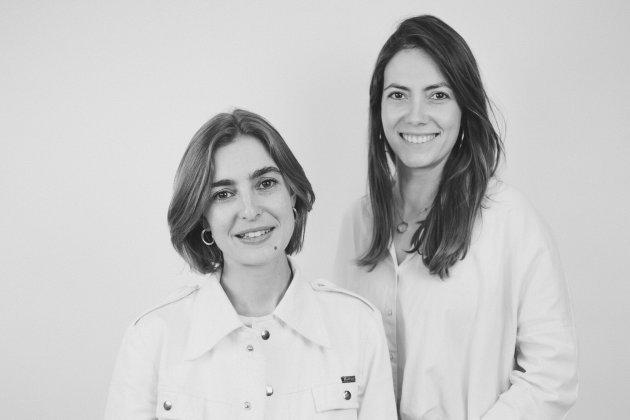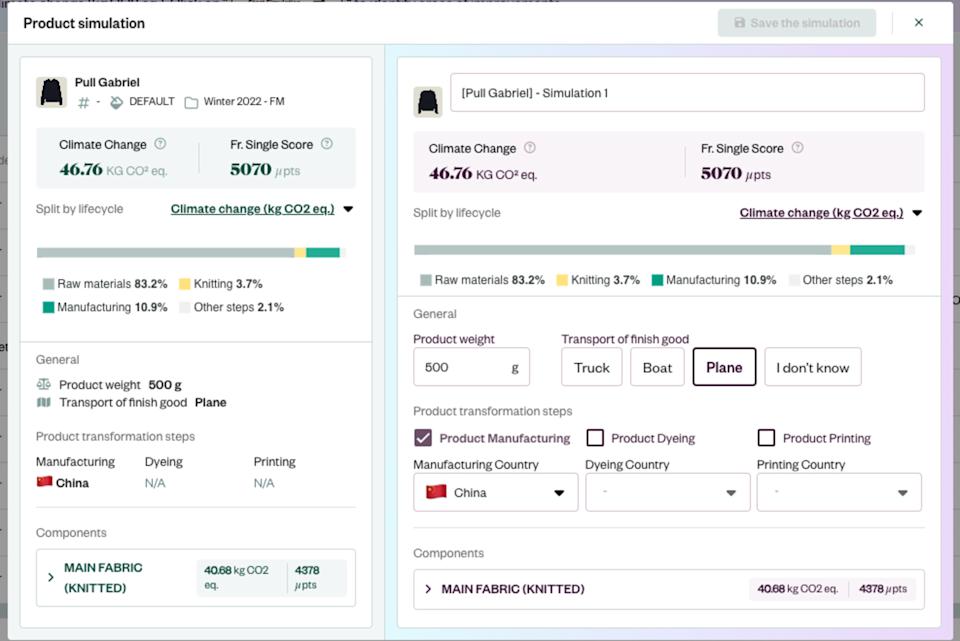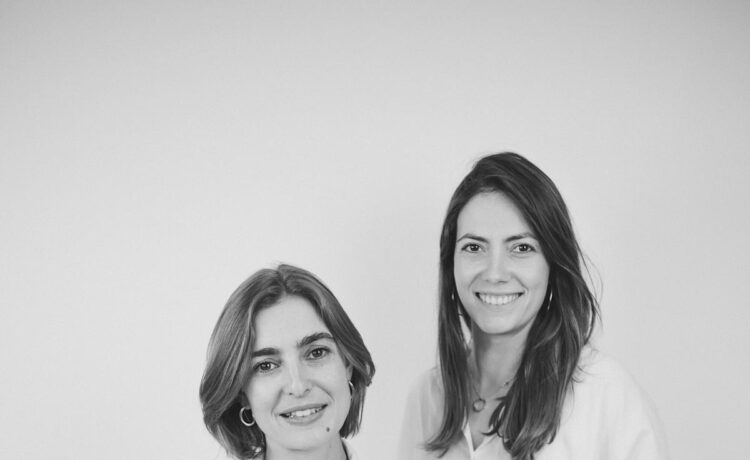
PARIS — French fashion traceability platform Fairly Made has closed a 15 million funding round to accelerate its global expansion.
The company works with more than 100 brands including Another Tomorrow, A.P.C., Courrèges, Ganni, Patou, Paul Smith and Versace.
More from WWD
The round was led by BNP Paribas Asset Management’s sustainability-focused arm Solar Impulse Venture Fund and European impact venture firms GET Fund, ETF Partners and FrenchFounders.
ETF Partners and FrenchFounders also led a 5 million-euro round of funding in 2022. FrenchFounders, the investment arm of the International Francophone Business Network that works with retail partners, will also use its connections to support Fairly Made’s growth.
The French start-up, which was selected at launch to be part of LVMH’s Maison des Startups incubator, uses data to evaluate and score a brand’s entire supply chain. Its traceability analysis evaluates transparency, environmental impact, social performance and recyclability. Fairly Made works directly with suppliers to collect the data, as well as any certifications they have. The company then performs its own environmental and life cycle analysis, and can assess factors like transport distance and method to arrive at its impact measurement.
Then, using its software, brands can trace an item through its entire value chain and assess its sustainability and pinpoint areas of impact.
For consumers, the info is available via a QR code on a hangtag, and can deep-dive into the data on the company’s website.
The new funds will go toward key expert hires, enhance supply chain traceability and transform the software-as-a-service platform into a technology player.
“Developing a robust SaaS platform allows us to support brands in addressing the environmental and social challenges of tomorrow. By combining traceability, eco-design and consumer transparency, we are equipping the fashion industry with the tools needed to drive meaningful change,” said cofounder Laure Betsch.
“After six years of growth, our international expansion reflects our ambition to become the global leader in sustainable fashion,” added cofounder Camille Le Gal.
The company opened an office in Milan in March 2023, and has bigger international growth ambitions. It is currently seeing steady growth in the U.K. and Scandinavia.
The U.S. is in its sights, and the company is already working with two major brands there, Le Gal told WWD. “For sure the U.S. is a next target market. There are so many new opportunities over there. For the U.S., it’s always a matter of momentum.”
With the funding round, a U.S.-based salesperson will be added to the team. The company now has 80 employees worldwide.
“Once a nice-to-have, supply-chain visibility has now become a critical first step in implementing sustainable practices. Already a key player in the industry, Fairly Made leverages its cutting-edge SaaS platform to deliver transparency and traceability at scale, while its newly launched eco-design module addresses the growing demand for actionable change within the industry,” said BNP Paribas Solar Impulse Venture Fund partner Laura Wirsztel.
The expansion comes as the European Union’s digital product passport rules, which require brands communicate their supply chain and the recyclability of a garment, are set to become mandatory in 2026. The new law will be fully in force by 2030, making Fairly Made’s technology a key need for brands to comply with regulations.
Digital passports turn expertise into value for consumers by offering clear details on raw material origins, manufacturing processes and the environmental impact of each product. The company addresses the growing demand for transparency and sustainability within the fashion sector.

Product simulation within the eco-design capsule.
The company has also introduced its eco-design module, which allows brands to see different paths toward sustainability at the first stages of the design process and earliest stages of production. For example, a designer can click on a product and see what its potential impact could be, and could then use the platform to run through various supply chain scenarios to reduce the product’s environmental impact such as looking at different mills or material mix.
The rollout of the eco-design module is a key step in Fairly Made’s journey. It was the duo’s dream to develop a software like this when it launched in 2018, but took years to develop.
“Now, as we are able to embark more and more brands, we feel that we have the biggest impact with eco-design,” Le Gal said. It cuts the analysis and sourcing time down significantly. “The idea of empowering the brands with dedicated tools, such as being able to click on the product and discover its potential impact, was really behind the idea of Fairly Made.”
Best of WWD
Sign up for WWD’s Newsletter. For the latest news, follow us on Facebook, Twitter, and Instagram.

















